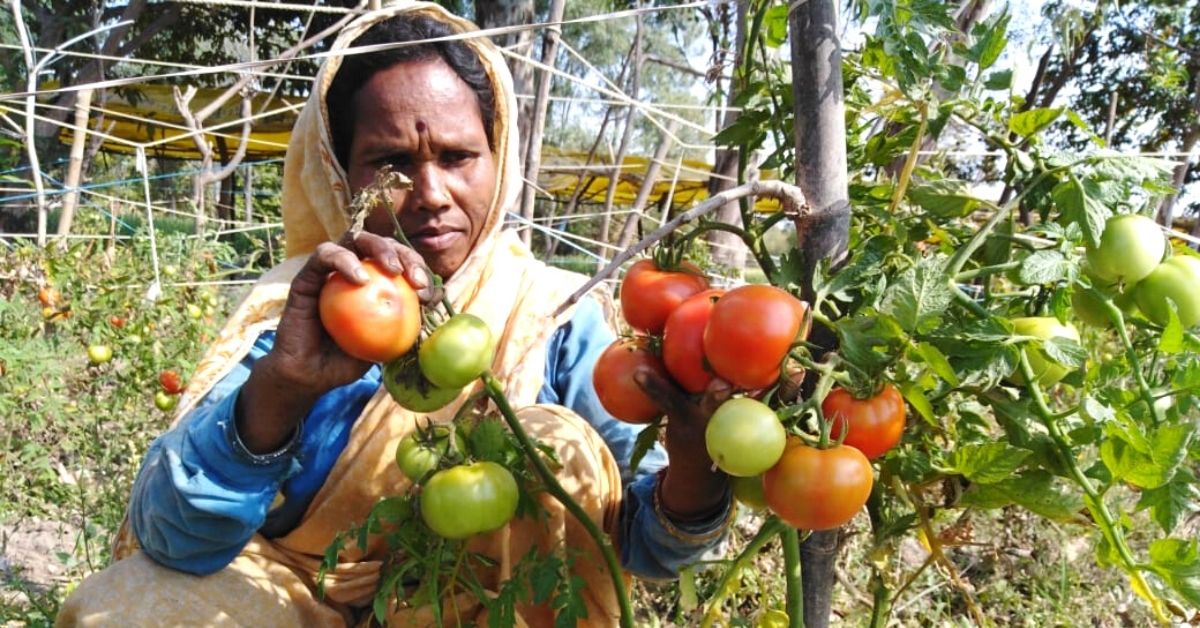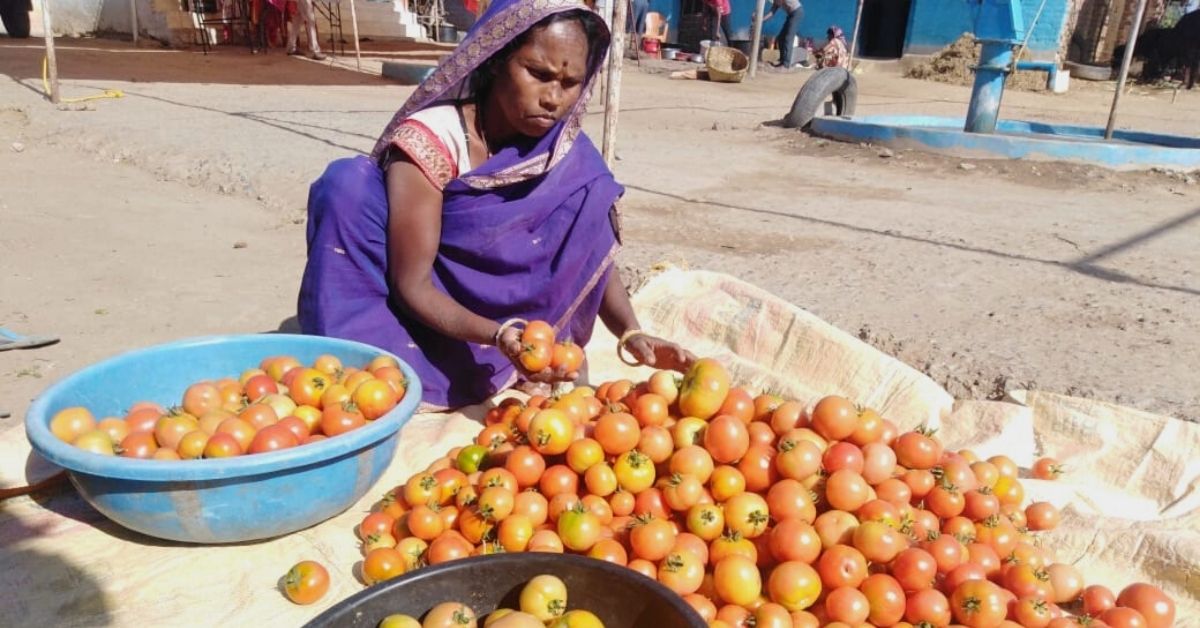MP Farmer’s Bumper Crops & Profits Convinces Farmers in 6 villages to Turn Organic
Laxmi Parate grew tomatoes with organic methods, making a 30% surplus harvest, and sold her produce for higher than market rates

In late 2016, farmers of Khaparkheda village in Madhya Pradesh were surprised (or perhaps shocked) to see the farm of Laxmi Parate produce a high-quality surplus harvest of tomatoes, earning her a bumper profit.
This fact was perhaps hard to digest because just a few months ago, they had mocked Laxmi for the new farming techniques she had adopted – Zero chemical fertilisers and pesticides.
That was then. Today, Laxmi’s success has helped convert 125 acres of land into pure organic farming.
“We were always scared to implement organic methods for crop cultivation. But here the difference was visible in more ways than one,” said Asharam Yadav, a farmer from the village.
Asharam owns 15 acres of agricultural land and confirmed that the shelf life of organic tomatoes was longer. “This was the first difference that I observed. The chemically grown tomatoes had a shorter shelf life. The shine on these tomatoes was very different and attracted more customers,” he added.
The farmer said that Laxmi’s produce also had far fewer infections by common fruit penetrating insects. “The fruit was superior at multiple levels,” Asharam said.
Toxin-free farming

But Laxmi says that it was an outcome she was always expecting.
“No one trusted my sudden change in farming methods, and it was an experiment for me also,” says Laxmi, who owns a three-acre plot of land in the village, located in Betul district.
Like conventional farmers, Laxmi used to toil in the fields using chemical fertilisers like Urea, DAP and pesticides. But the toxins affect the fertility of the soil and harden its texture.
However, a workshop from the BAIF Development Research Foundation convinced her to switch towards organic farming methods.
“I learned to make organic compost from farm waste and was the only woman from my block to attend the workshop. I decided to try it out in one acre with tomato plants,” she said.
“The results were astounding as I produced a harvest of 2.5 quintals which was 30 per cent more than the normal outcome,” she added.
Looking at the quality and size of her tomatoes, Laxmi decided to sell them at Rs 15 a kg against the market value of Rs 10 for the same quantity.
Customers bought them in droves, increasing her earnings. “Also, I was also happy to save the Rs 20,000 chemical fertilisers and pesticides usually cost me,” she added.
Multiply the success

Looking at her success, over a dozen women farmers approached to learn about compost and organic mixes for pesticides.
“Rather than going to each home, I decided to teach them collectively and formed a group. It became easier that way,” Laxmi said.
That was the small beginning. Today over 125 acres, that includes farmers from six neighbouring villages have taken a cue from Laxmi and switched to organic farming.
Asharam said that he prepared three acres for organic farming. “The work to convert some land into organic farming for onions is being considered. I will not be able to convert the entire land into organic methods at one go. But that is the ultimate goal,” he added.
“Women are major contributors to farming activities in the area. Hence, we decided to convince and train one farmer,” said, Krishna Sahu, programme officer at BAIF, a charity based Development Research Foundation.
Krishna said that traditional prejudices often act as a hurdle and slow positive change. “It is commendable that Laxmi convinced over a hundred farmers to switch to organic farming,” she added.
Recognising her efforts, Laxmi was awarded the ‘Krishi Vigyan Kendra’ Award in September this year for using progressive farming techniques.
“The quality of soil in the farm has improved immensely in the last four years. We are now producing compost and organic manure on a large scale to sell and earn additional income from it,” Laxmi told The Better India.
(Edited by Vinayak Hegde)
If you found our stories insightful, informative, or even just enjoyable, we invite you to consider making a voluntary payment to support the work we do at The Better India. Your contribution helps us continue producing quality content that educates, inspires, and drives positive change.
Choose one of the payment options below for your contribution-
By paying for the stories you value, you directly contribute to sustaining our efforts focused on making a difference in the world. Together, let’s ensure that impactful stories continue to be told and shared, enriching lives and communities alike.
Thank you for your support. Here are some frequently asked questions you might find helpful to know why you are contributing?


This story made me
-
97
-
121
-
89
-
167











